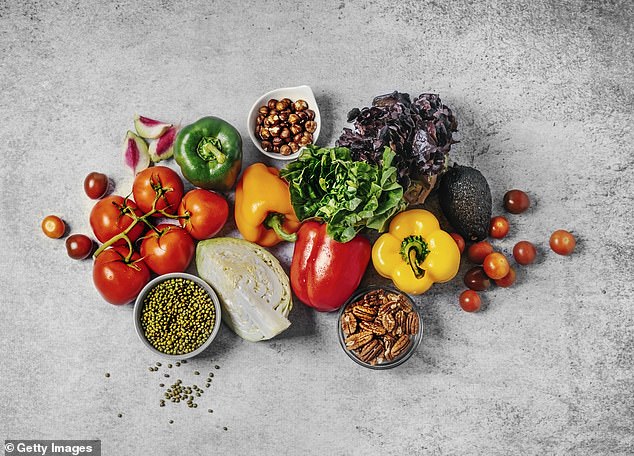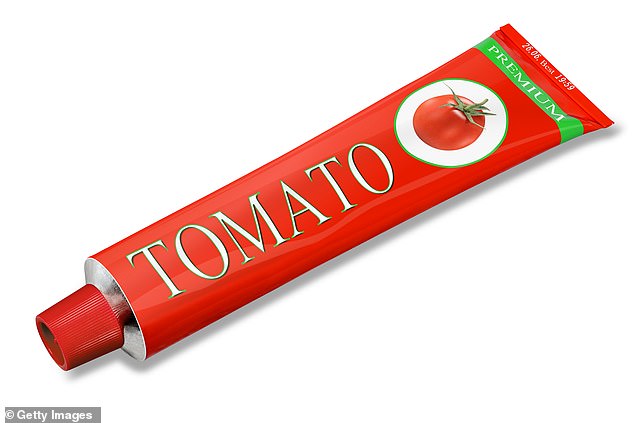You might think the secret to a youthful looking skin lies in applying a costly cream – but in fact studies show that what you eat can affect your chances of retaining a smooth complexion or developing wrinkles.
Your skin is a very hungry – and sizeable organ – acting as a protective barrier against the outside world. Your skin cells are constantly renewing – but with age, this turnover takes longer.
In your late 20s it takes around 40 days – by your 60s, it’s closer to 56 days, according to a seminal study on skin ageing published in the Journal of Investigative Dermatology in 1987.
And that cell turnover process requires a steady supply of nutrients: without this, the state of your skin can suffer.
Deficiencies in iron (found in red meat and beans) or healthy fats (avocados and oily fish) for example, can make your skin dry, cause rashes, and may affect how youthful your skin looks and feels.
But what about aging specifically?

There’s no doubt that sun exposure and smoking are clearly linked to visible signs of aging and taking action on both will make a real difference
There’s no doubt that sun exposure and smoking are clearly linked to visible signs of aging and taking action on both will make a real difference.
And a balanced diet, although it won’t stop all visible aging, can also help. A review of 109 studies published in Scientific Reports in 2021 concluded that a higher intake of vegetables and omega-3s (found in oily fish and walnuts) was linked to fewer wrinkles and less dryness.
This is not about single so-called skin ‘superfoods’ (although tomatoes deserve a special mention, see below): the key is your overall dietary pattern, a variety of whole foods – as well as fruit and veg and oily fish this means whole grains, beans, nuts and seeds – because your skin has multiple nutrient requirements.
For instance, vitamin C from fruit and veg aids the production of collagen, which helps give skin its elastic quality. Zinc, from foods such pumpkin seeds and chickpeas, supports wound healing and may help reduce acne breakouts (if you have a deficiency), and those omega-3 fats keep the skin supple and tackle low-grade (and highly aging) inflammation.
If you want to eat one thing for your skin then make sure you eat tomatoes, or specifically tomato paste. A 2001 study published in the British Journal of Dermatology found that eating 55g of tomato paste daily (about two tablespoons) for 12 weeks helped protect skin from sun damage by making it more resistant to UV rays.

My advice would be save your money and instead find ways to improve your overall diet, writes Dr Emily Leeming

A balanced diet can also improve skin condition, with a higher intake of vegetables and omega-3s linked to fewer wrinkles and less dryness

A 2001 study found that eating 55g of tomato paste daily for 12 weeks helped protect skin from sun damage by making it more resistant to UV rays
This effect is likely due to lycopene, a powerful antioxidant in tomatoes. Cooking tomatoes, as in tomato paste, increases lycopene levels and makes it easier for your body to absorb.
A more recent review of studies, published in Critical Reviews in Food Science and Nutrition last year builds on that. Pulling together 21 clinical trials, it found that adding tomato products (such as tomato paste, juice or whole tomatoes) or lycopene supplements to your routine can help your skin become more resilient to sun-induced skin damage.
The study found that people’s skin was less red, a sign of damage, after UV light exposure – and their skin was also thicker and denser, with lower levels of inflammatory markers in the tissue compared to those who didn’t supplement their diet with tomato.
There were also signs that their skin colour was more even – less patchy or with reduced areas of pigmentation (a sign of sun damage). The benefits were clearest when people stuck with the added lycopene consistently for at least eight weeks and, interestingly, the dose didn’t need to be high to have an effect (below 10mg per day, equal to about a tablespoon of tomato paste).
Finally, a word about collagen supplements – many people swear by them for keeping skin supple, but is there any evidence that they really help or is it all swish marketing?
In fact, some studies do show they may improve skin hydration and elasticity, especially as we age and make less of our own. But the effects are usually mild, and it takes time – a couple of months of daily use. A 2025 review of existing research, published in the American Journal of Medicine, found that while collagen supplements appeared to improve skin hydration and elasticity, overall the positive studies were those funded by the industry: the benefits were not seen in high-quality and independently funded trials. The bottom line? There’s little substantial evidence that collagen supplements prevent skin aging.
My advice would be save your money and instead find ways to improve your overall diet. Your skin will thank you for it.












